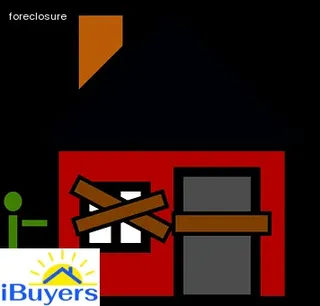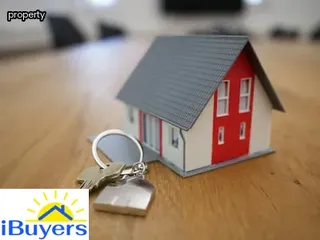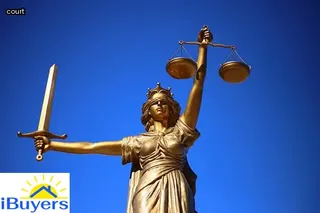In California, Homeowner Associations (HOA) have the legal right to place a lien on a homeowner's property if they fall behind on their payments. This lien is typically in the form of unpaid HOA fees and assessments, which can accumulate over time.
The amount owed must be paid before the lienholder can foreclose on the property. HOAs have the right to foreclose on properties in order to collect any outstanding debt that is owed by the homeowner.
It is important for homeowners to understand their rights and obligations regarding HOA liens in order to avoid foreclosure. In California, homeowners are legally required to pay all HOA fees and assessments that are due as soon as possible, as not doing so could result in a lien being placed on their property.
Additionally, understanding how HOA liens work, including how long it takes for an HOA to take action, what type of debt can lead to a foreclosure notice and any applicable deadlines is key for homeowners who find themselves facing an HOA lien or foreclosure. Knowing these regulations can help California homeowners protect their assets from an HOA foreclosure or other financial losses due to non-payment of dues.

Failing to pay Homeowners Association (HOA) fees can present a range of risks for California homeowners. When HOA fees are not paid, homeowners may face foreclosure proceedings that could lead to the loss of their home and a damaged credit score.
Additionally, if delinquent HOA fees are not paid within a certain amount of time, they can be subject to interest rates and late penalties. Furthermore, legal action may be taken against homeowners who owe HOA dues, resulting in the accumulation of lawyer’s fees and court costs.
If a homeowner is unable to pay their HOA dues at any point, it is important to communicate with their local Homeowners Association as soon as possible because there may be options available for payment plans or other agreements that can help avoid foreclosure. Understanding the consequences of not paying HOA fees in California is essential for homeowners so that they can make sure to remain up-to-date on payments and avoid putting their home in jeopardy.
When it comes to understanding HOA foreclosures in California, homeowners need to be aware of the potential implications of failing to comply with statutory requirements on HOA boards. Ignoring these legal obligations can have serious consequences, such as fines or even court action from the association.
Even worse, if the board fails to take correct steps for foreclosure proceedings, it could end up costing the community more money than necessary. Homeowners should make sure that their HOA is adhering to all relevant laws and regulations before proceeding with any foreclosure attempts.
Otherwise, they could end up facing unexpected costs or worse. It's important for homeowners to be aware of these potential risks and ensure their HOA is taking all necessary precautions when handling any foreclosure proceedings.

In California, homeowners who fail to pay their HOA fees can face serious consequences. Homeowners may be subject to late fees, fines, and even foreclosure of the property.
Beyond this, non-payment of HOA fees can also hurt a homeowner's credit score, making it difficult for them to secure future housing or financing. In some cases, an HOA may also bring a legal action against the homeowner in order to recover back dues and other costs associated with collecting delinquent payments.
It is important for homeowners in California to understand that not paying their HOA fees can have significant financial and legal repercussions which should be avoided at all costs.
In California, an HOA foreclosure can have a major impact on homeowners and their mortgages. The foreclosure process itself begins when the homeowner fails to pay the HOA fees for more than 30 days.
At this point, the HOA has the legal right to place a lien against the property; if it is not paid in full within 90 days, the HOA may pursue foreclosure. During this process, mortgage lenders are kept informed of any changes in ownership or title status of the property.
It is important to note that while a lien will stay on a property until it is paid off, a foreclosure will render all other liens null and void. This means that should an HOA choose to foreclose on a home, any remaining debt owed by the homeowner (such as mortgage payments) would no longer be enforceable.
While this could provide some relief for those struggling with high mortgage payments, there is also potential for financial ruin since they would still need to pay off any remaining balance due on their mortgage even though they no longer own their home. Furthermore, homeowners should be aware that although an HOA foreclosure typically only affects the value of a home rather than its title or ownership, it can still affect future financing applications as many lenders often take into account outstanding liens or foreclosures when assessing loan eligibility.

In California, homeowners are often subject to fines levied by their homeowner's association (HOA). While the exact types of fines imposed may vary from one HOA to another, there are some common types that homeowners should be aware of.
Late fees are typically imposed when a homeowner fails to pay an assessment or fee on time. Additionally, many HOAs have rules and regulations governing how a property can be used or maintained.
If these regulations are not met, the homeowner may be fined for violating them. Some HOAs also impose fines for making unauthorized changes to a property or for having a pet that is not allowed in the community.
All these types of fines can add up quickly and can negatively affect a homeowner's finances if left unpaid. It is important for homeowners to understand the types of fines they may face and take steps to avoid them whenever possible.
When it comes to understanding HOA foreclosures in California, homeowners need to be aware of when it is necessary to seek legal help. Generally, a homeowner may want to consider hiring an attorney if they are facing a lengthy and complicated foreclosure process, have multiple liens against the property, or if the HOA has violated their rights as a homeowner in any way.
When dealing with an HOA foreclosure, a homeowner should make sure that they have all of the proper documents needed including a title deed, lien description and payment record. An experienced lawyer can help guide homeowners through the process by providing legal advice and representation throughout the entire procedure.
Additionally, due to the complexities of foreclosure law in California, legal assistance may be necessary for negotiating settlements or modifying existing loans. Ultimately, the decision on whether or not to seek legal help relies on how comfortable the homeowner feels handling all of these matters on their own.

When facing the prospect of a foreclosure in California, it is important for homeowners to understand their rights and options. Homeowners should research the laws and regulations pertaining to their particular situation and consider seeking representation from an experienced professional to protect their interests.
In some cases, such as when pursuing a loan modification or handling disputes with a lender, a real estate attorney can be especially helpful. Additionally, there are organizations that specialize in providing counseling services for homeowners facing foreclosure such as HUD-approved housing counselors who offer free guidance and assistance with navigating the complexities of the foreclosure process.
Knowing your rights, exploring all available options, and taking advantage of professional representation are essential steps for California homeowners looking to preserve their homes and their financial future during times of distress.
When it comes to resolving real estate disputes, there are a few strategies homeowners in California need to be aware of when dealing with HOA foreclosures. Mediation is a good approach for settling disagreements between parties and can often be used to negotiate an agreement that satisfies all involved.
Additionally, arbitration or litigation may be necessary if mediation does not yield a successful resolution. It’s important for homeowners to understand their rights during this process as well as the legal implications of any arrangement they agree to.
Consulting with experienced legal counsel is strongly advised so that all parties have a clear understanding of the complex laws surrounding foreclosure proceedings in California and can ensure they are treated fairly throughout the process.

Navigating business disputes involving HOAs can be a daunting task for homeowners in California. Not understanding the foreclosure process and timelines can create additional stress.
It is important for homeowners to familiarize themselves with what is involved in a HOA foreclosure, as well as the rights of both the HOA and homeowner under California law. Homeowners should research how to navigate the dispute resolution process including filing a complaint with their local consumer protection agency and engaging legal counsel.
Additionally, they should understand their own rights when it comes to HOA foreclosures, such as being able to negotiate a payment plan or request mediation before any action is taken. By taking these steps, homeowners will have the knowledge needed to protect their interests and make sure that their rights are respected throughout the dispute resolution process.
After identifying that construction defects are present in a home, it is critical for homeowners to take the necessary steps to protect their rights and determine their options. The first step is to contact the builder or contractor who performed the work as soon as possible.
It may be necessary for a homeowner to get an independent inspection and obtain legal advice from an experienced attorney. Homeowners should also document all communications with the builder and keep track of any expenses related to repairs or legal fees.
Additionally, they should consider filing a complaint with the California Department of Consumer Affairs if they feel that they have been taken advantage of by a contractor or builder. Finally, it is important for homeowners to stay informed about foreclosure laws in California so that they can better understand their rights and obligations when dealing with hoa foreclosures.

When a homeowner in California falls behind on payments to their Homeowners Association (HOA), they can face foreclosure. To understand why, it is necessary to examine the link between owner debts and HOA levies.
A HOA levy is an assessment of fees charged to homeowners by the association in order to fund and maintain common areas within a community. These fees are typically collected in the form of monthly or annual dues, which must be paid on time and in full according to the governing documents of the HOA.
If a homeowner fails to make their required payments, then the HOA may pursue foreclosure proceedings against them for delinquent dues. This makes it important for homeowners to understand their financial obligations to their HOAs and act accordingly.
Additionally, homeowners should also know what rights they have when it comes to defending themselves against potential foreclosure actions. For example, some HOAs may offer payment plans or other alternatives that could help homeowners avoid foreclosure altogether.
Knowing these options and understanding your rights as a homeowner is critical if you ever find yourself facing a potential HOA foreclosure in California.
The financial burden of unpaid fines and fees associated with HOA foreclosures in California can be devastating for homeowners. Compounding late payments can quickly add up, resulting in an inexorable spiral of debt that often leads to foreclosure.
Unfortunately, the homeowner may not even be aware of the accumulating costs until it is too late. Oftentimes, Homeowners Association boards will provide inadequate notices to homeowners regarding their payment obligations, leaving them unaware of the true cost they are incurring.
Furthermore, many HOAs impose excessive fines and fees on homeowners who are already having difficulty making payments - a practice which could unfairly deprive them of their rights. As such, understanding potential penalties associated with non-payment is essential for California homeowners to protect themselves from facing costly legal action or a foreclosure.
If a homeowner in California fails to pay their Homeowner's Association (HOA) fines, they may be subject to foreclosure. The HOA has the right to pursue legal action against the homeowner by filing a lien against the property and then foreclosing on it.
This means that the HOA can sell the home at a public auction and use the proceeds to pay off any outstanding fines or fees owed. If the homeowner is unable to come up with the money needed to pay off their debt or if they fail to respond to any notices sent by their HOA, foreclosure proceedings may begin.
Once a lien is placed on a property, foreclosure proceedings are typically started within 90 days; however, this time frame can vary depending on local laws and regulations. It’s important for homeowners in California to understand their rights when it comes to facing HOA foreclosure so that they can take steps towards resolving their situation and preventing further financial hardship.

In California, HOA foreclosures have their own set of rules and regulations. One of the most important aspects for homeowners to understand is the redemption period that follows a foreclosure.
According to California law, the redemption period for HOA foreclosures is six months from the date of sale. During this time, the homeowner may reclaim their property by paying off all missed payments plus interest and other costs associated with the foreclosure process.
It's important to note that if a homeowner does not redeem their property within this six-month window, they will lose ownership of the property permanently. Homeowners should be aware that interest and fees continue to accrue during the redemption period, so they should act quickly if they wish to reclaim their home.
In California, there are certain Homeowners Association (HOA) rules that are unenforceable. These include rules that limit the number of occupants in a home, establish or restrict rent control or tenant screening policies, and regulate what type of landscaping is permitted on private property.
Additionally, HOAs in California cannot impose restrictions on the sale of personal property, such as furniture and appliances, or place limits on how often homeowners may rent out their properties. HOAs also cannot impose fines for noncompliance with rules unless approved by the state government.
Furthermore, HOAs cannot limit the rights of tenants to use common areas or facilities or prevent them from having visitors. This means that owners must understand which HOA rules are enforceable and which ones are not before they face foreclosure due to noncompliance with an unenforceable rule.
In California, Homeowners Associations (HOAs) have a considerable amount of power when it comes to foreclosures. According to California law, an HOA has the right to file a lien against a homeowner who fails to pay assessments or other fees due to the association.
If this lien is not paid in full within 90 days, the HOA can then proceed with foreclosure proceedings. This means that if a homeowner does not comply with their obligations and payments towards the HOA, they risk losing their home.
HOAs also have the power to impose fines and liens on homeowners for any violation of their governing documents. Furthermore, HOAs may be able to take legal action against homeowners who are delinquent on payments or in violation of covenants.
It is important for homeowners in California to understand these powers so that they can protect themselves from potential foreclosure proceedings initiated by their HOAs.